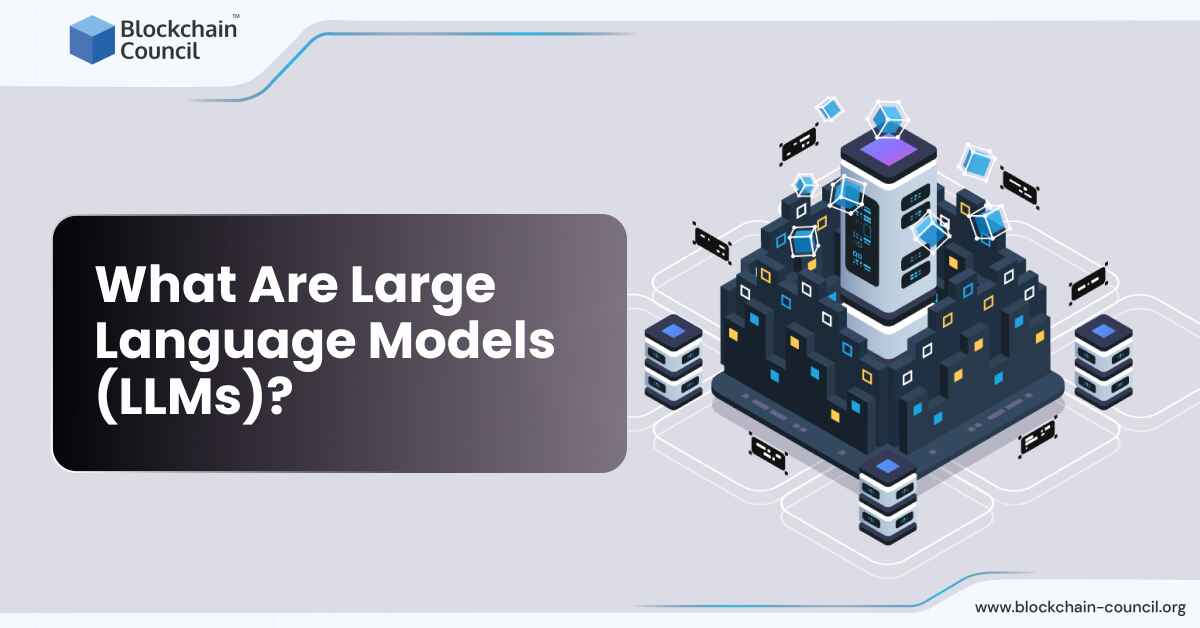
- Blockchain Council
- January 16, 2025
In recent times, the use of AI has expanded quickly. However, not everyone possesses the skills needed to build advanced models from scratch. No-code tools make it possible for users to engage with complex AI systems without coding. This approach opens up opportunities for people from various backgrounds to utilize AI for different purposes.
Understanding No-Code LLM AI
No-code LLM AI includes tools and platforms that let users interact with large language models without writing any code. These platforms provide visual interfaces or simple configurations to customize models, create AI-based applications, or perform advanced tasks like natural language processing (NLP), text creation, and even code automation.
Typically, these platforms offer a visual environment where you can drag and drop components, adjust settings, and connect with other applications. The main objective is to simplify and broaden access to AI-powered solutions. This way, even individuals without programming knowledge can utilize AI tools.
How No-Code LLM AI Functions
As mentioned, no-code LLM AI platforms generally provide a user-friendly interface where people can select pre-built models or upload data to modify models. The platform manages the technical aspects of training, deploying, and scaling the model. Users can then link the AI to various inputs, like text fields or chatbots, and decide on the outputs they need, such as replies or actions triggered by specific keywords.
These platforms also support linking with different data sources, enabling the creation of AI tools that process and analyze information from multiple sources, like documents, databases, or APIs.
Top No-Code LLM AI Platforms
H2O LLM Studio
H2O LLM Studio is an easy-to-use no-code platform that helps users build and refine large language models without any programming. It has a user-friendly interface for creating and training models suited to specific tasks such as text categorization, summarization, and more. The platform offers AutoML capabilities, automatically identifying the best-performing model based on your data and needs. H2O offers a helpful community and numerous resources. Therefore, it is a great option for beginners and experienced data professionals.
Google AutoML
Google AutoML is a collection of tools that allows users to create high-quality models tailored to their needs without deep technical knowledge. It works with different data types. These include text, images, and videos. Tools such as AutoML Natural Language enable users to develop text classification and entity extraction models with a simple drag-and-drop setup. This makes it perfect for companies wanting to incorporate machine learning into their processes without needing extensive AI skills.
RunwayML
RunwayML is a flexible no-code platform focusing on creative AI applications. It enables users to train models and deploy them. These models can be used for tasks such as creating images, editing videos, and natural language processing (NLP). With a straightforward three-step process—uploading data, training the model, and exploring outputs—RunwayML is popular among artists, designers, and creators who wish to include AI in their work without needing programming skills.
Teachable Machine by Google
Teachable Machine is an online platform that lets users create custom models. These models can classify images, sounds, and poses. It’s highly intuitive, making it suitable for teachers, students, and hobbyists who want to experiment with machine learning without programming. By using transfer learning, users can train models on their own data and deploy them easily through a simple interface.
Amazon SageMaker Canvas
Amazon SageMaker Canvas offers a no-code space to create and launch machine learning models. It’s made for business users who want to produce precise forecasts with their data. It includes ready-made models and lets you bring in data from sources such as Amazon S3. SageMaker Canvas makes the machine learning process easier, covering everything from preparing data to deploying models.
Microsoft Lobe
Microsoft Lobe is a user-friendly no-code platform that assists users in creating models for image categorization tasks. The platform chooses the best model design based on the uploaded data and gives real-time feedback on model performance. This makes it a great starting tool for anyone interested in exploring AI in a practical, visual manner.
Akkio
Akkio is an all-in-one no-code AI platform aimed at business users looking to include AI in their workflows. It offers tools for data preparation, model creation, and deployment, all within a visual interface. Akkio works smoothly with well-known business platforms like Salesforce and HubSpot. This allows users to apply AI for various activities, such as predicting sales, dividing customers into segments, and improving marketing efforts.
Obviously AI
Obviously AI enables users to create predictive models quickly using historical data. It handles the entire process of model selection, feature engineering, and hyperparameter tuning, providing actionable insights in minutes. It’s perfect for business users needing quick, accurate predictions without requiring data science knowledge.
PyCaret
PyCaret is a Python library that requires minimal coding for machine learning. It streamlines the whole process, making it easier to manage. Although it involves some coding, it is very accessible for users who want to combine machine learning with tools like Power BI and Tableau. It’s especially helpful for those wanting to do in-depth data analysis without needing much coding experience.
Stack AI
Stack AI offers a no-code platform for integrating custom large language models (LLMs) into products or workflows. It supports models like ChatGPT, making it a good option for businesses wanting to build AI-powered applications efficiently. For instance, you can set up a chatbot that handles customer questions without writing a single line of code.
Advantages of No-Code LLM AI
Challenges and Considerations
- Quality Control: AI results depend on the quality of input data and configurations.
- Data Privacy: Users must manage sensitive information carefully on no-code platforms.
- Model Limitations: Pre-built models may not fit unique applications, possibly requiring technical adjustments.
Final Thoughts
No-code LLM AI platforms have made it much simpler for businesses and individuals to use AI without technical hurdles. By providing easier access to sophisticated models, these platforms enable a variety of uses across industries, from automating workflows to creating interactive AI applications.







































































 Guides
Guides News
News Blockchain
Blockchain Cryptocurrency
& Digital Assets
Cryptocurrency
& Digital Assets Web3
Web3 Metaverse & NFTs
Metaverse & NFTs
